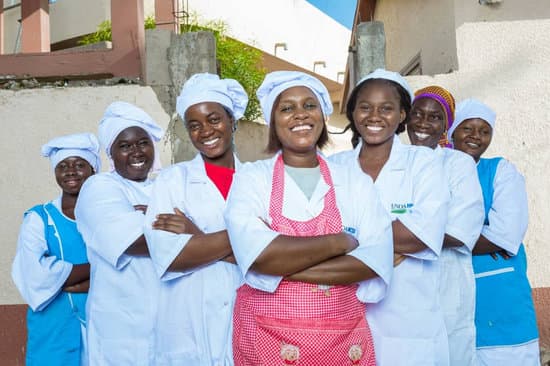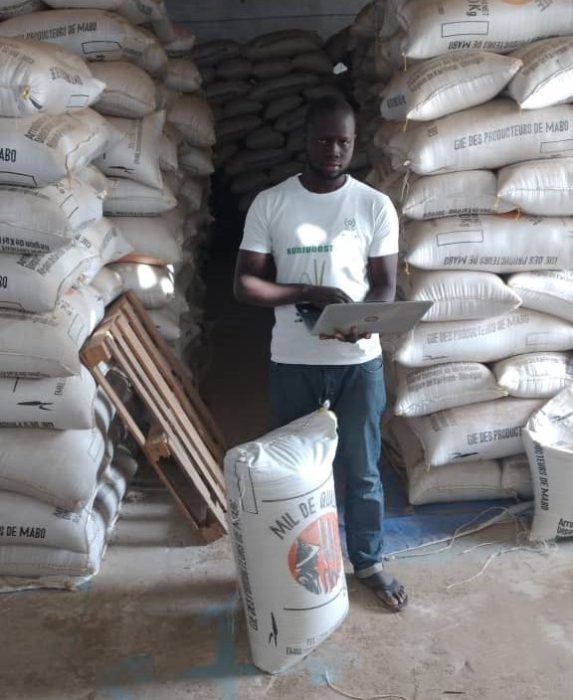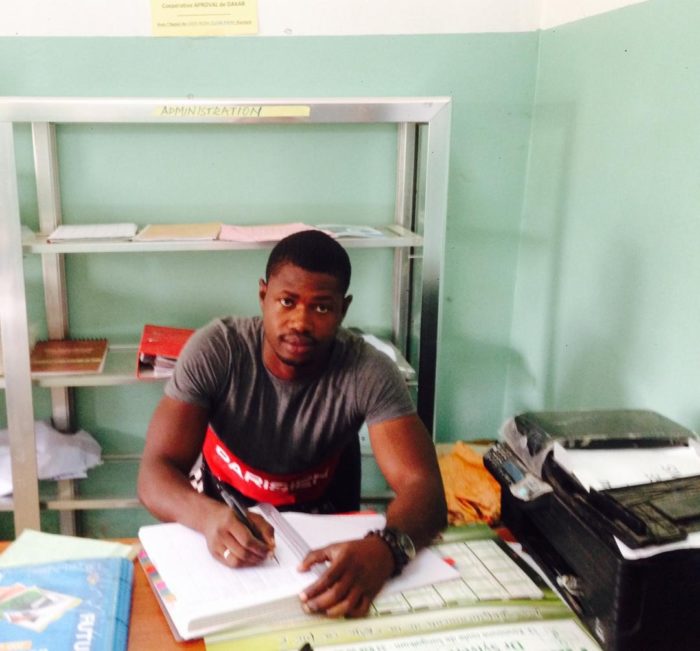
According to UN projections [1], the population of Senegal is expected to reach nearly 20 million in 2030. Today, the labor force represents 64.8 percent of the total population and the rural sector, which represents 55 percent of the Senegalese people, is home to 54 percent of the labor force. The number of young workers is expected to reach 411,000 in 2030 while the formal sector is expected to create 30,000 jobs per year at best.[2] The large youth population represents one of Senegal’s most significant national assets, but they’re not finding decent employment.
Through an inclusive systems approach to the development of the millet value chain, NCBA CLUSA, through the USDA funded Millet Business Services Project, successfully engaged rural youth as farmers, agricultural entrepreneurs, and service providers. While youth (aged 18-35) only make up 18 percent of the individuals reached in production, in processing and trade 42 percent are young women. The project created over 600 jobsin processing and handling and youth hold 93 percent of these jobs.
Youth agents for innovation

Engaging youth at the village level spurred technology use in the most remote areas. Assane Cissé is 29 years old and is a husband and a father. While Assane left high school as a senior, he has kept up with new technologies and social media. His village, Mabo, is almost 200 miles away from the capital, and around 38 miles on an unpaved road to the closest town. In 2016 he joined the Mabo network, now multiservice hub, as a knowledge manager. At the time, the producers were facing several challenges. This network had grown to over 1,400 registered producers in 65 villages. It was becoming nearly impossible for the leaders to control compliance with millet storage standards in the warehouses and to monitor production. Through the project, Assane participated in life and leadership skills training that helped him ensure high-quality services to farmers. Using his computer skills, he helped the cooperative digitize their data and reorganize their monitoring system. The network became one of the best-known and well-connected networks in millet production. Assane identified trusted lead producers by zone and worked with project data collectors to improve efficiency in monitoring and selling through the cooperative. Assane also has hired stock managers to ensure the quality and optimal storage of millet.
Today, Assane is a confident manager and entrepreneur. With his savings, he started several small businesses and creates value in his community. He states, “With the savings and knowledge acquired thanks to the training received from USDA|MBSP and other partners, I invested in the design of business cards and association membership cards. I also bought some sheep and poultry. All this allowed me to meet my expenses as young head of household”.
Assane is now a youth leader in his community. He is contacted by young people for advice and is often asked to share his knowledge on agricultural production in Mabo.
“The project has radically transformed my life. My [financial] contribution and my financial skills make me a central member of the family, Alhamdulillah!”, he says.
Agriculture offers business opportunities for youth
The Professional Association for the Valorization of Local Products (APROVAL) is a woman-owned association that was created in 2012 by 21 women business-owners working in the processing of local products including millet and corn. Today, the association has a total of 250 members living in a suburban town of Dakar called Rufisque.

Seydou DIOP is 28 years-old and the son of one of the members of APROVAL. Today, he is the proud manager of the company, but this was not what he had envisioned when he started his classes in business and management. After graduating with his master’s degree from Chief Anta Diop University of Dakar, Seydou’s dream was to find a management position in Dakar and live in the city. After long months of unpaid internships, he was unable to secure paid employment. Seydou realized with sadness that he was now part of the alarming statistics of unemployed youth. In 2018, the USDA|MBSP project supported APROVAL in building a mill. Once the processing unit was ready, the members realized that they needed someone to manage the business and asked Seydou if he was interested. He accepted the offer. He explains, “I had previously worked in much more structured companies. APROVAL was the opportunity for me to put my expertise at the service of the business to help my mothersbecome more professional”.
As the manager of the milling business, Seydou is in charge of all aspects of supply, production, marketing and trade, as well as accounting and administration. His formal training allowed him to take on HR responsibilities and set new supply and production strategies. His willingness to take the risk of working in a small cooperative paid off. It allowed him to become financially independent and he enjoys his work. He also discovered the benefits of local grains and their role in nutrition and the local economy. “Working at the processing level allows me to live and support myself properly. I earn more money [with this job] than when I was in the mainstream business. And I feel more empowered here”, he said.
Today, Seydou is also involved in TV and radio programs on the processing of local cereals in Dakar. He encourages young people to join the food supply chains and is convinced that this is the solution to job creation for women and youth. He sees the consumption of local products as a path to local economic development and has has big ambitions. His dream is to increase APROVAL production and have its products accessible via supermarkets and shops in Dakar.
[1]https://africaupclose.wilsoncenter.org/youth-unemployment-a-potential-destabilizing-force-in-senegal/
[2]http://www.fao.org/rural-employment/resources/detail/en/c/416043/


